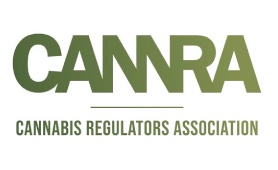|
The Cannabis Regulators Association (CANNRA) commends Congress for their bipartisan work on legislation to provide banking and financial services for the regulated cannabis industry and those who work with the industry. CANNRA is a nonpartisan, non-profit association that convenes governmental officials involved in cannabis regulation across more than 40 states and U.S. territories. Our member states and territories continue to report negative impacts from the lack of available financial and banking services for regulated cannabis businesses and those working with the cannabis industry. CANNRA previously sent a letter in May 2022 urging Congress to consider the realities and experience of state regulators when pursuing these important policy measures. Our prior letter highlighted banking and finance-related challenges cannabis regulators have observed in their states and territories. This letter provides updates regarding these issues, further demonstrating the importance of federal action. Public safety issues continue, and in some cases have increased over last year. Our letter last May detailed that cannabis regulators across a number of states reported that licensees had experienced break-ins and robberies primarily associated with cash-based operations. Some of these robberies tragically resulted in death. Robberies and thefts have not only continued but have been increasing in some states in this year compared with last year. For example, the state of Oregon documented 43 thefts in the first four months of 2022, and 52 thefts in the first four months of 2023, representing a 20% increase. The state of Michigan’s Cannabis Regulatory Agency released an advisory bulletin in November of 2022 highlighting increased criminal activity against licensed cannabis businesses, including 117 break-ins reported between April and November 2022. Michigan also reported 13 thefts from cannabis delivery drivers over a six-week period between December 2022 and January 2023. The state of Oklahoma documented nearly 40 thefts between August 2022 and March 2023, averaging nearly five thefts a month. Predatory banking and a lack of access to capital disproportionately impact small businesses. Our letter last May detailed impacts on small and minority businesses in the cannabis industry, including challenges accessing affordable banking services and difficulties accessing loans and capital – often resulting in small businesses amassing significant personal debt to finance their businesses because of costly banking fees and challenges obtaining loans. For example, the state of Hawaii reported that licensees do not have access to the state’s largest bank. There is a credit union offering banking services, but because of the perceived risk of banking cannabis-related funds, licensees pay for services at a rate of 6% when other non-cannabis industries bank at a rate of 0.5%. Other states, even states that have operated adult use marketplaces for nearly a decade report that banking services can cost licensees $1000 a month or more. Some licensees are completely left out of banking. An increasing number of states have licensing schemes that prioritize licenses for individuals with past cannabis-related convictions. Because of their past criminal record, these individuals may have no access to banking or financial services. It is important for banking solutions to account for the number of states prioritizing licenses or specific license types for those with past cannabis-related convictions, as this can represent a substantial proportion of some state marketplaces. State government agencies struggle to access banking and financial services as well. As reported in our May 2022 letter, several state government agencies have had and continue to have challenges finding banks they can use to bank licensee funds. For example, in both Maryland and West Virginia, the state contracted bank would not accept funds related to the cannabis regulatory program. Both states had to undergo a separate procurement process to identify a different bank that would take licensee fees paid in compliance with the state program regulations. Similarly, the state contracted bank in Virginia has denied requests for a purchasing card to pay for general agency operating expenses, including expenses not funded by cannabis licensing fees and not tied directly to cannabis regulatory activity. Other states, like Maine, have struggled to be able to accept credit card payments for licensee fees. The lack of safe banking and access to financial services for the regulated cannabis industry and those involved with the industry continues to be an urgent issue, resulting in ongoing public safety threats, disproportionately impacting small businesses across states and territories, and even impacting some state governments administering cannabis regulations. Cannabis regulators across states and US territories continue to strive for regulations that protect public health and consumer safety, promote equity, and promote regulatory certainty for industry operators. Access to safe banking is an integral part of our ability to accomplish these goals. We urge Congress to take this issue seriously and to move swiftly to provide policy solutions that reach the breadth of cannabis businesses operating in state and territorial marketplaces. |
|
|

















